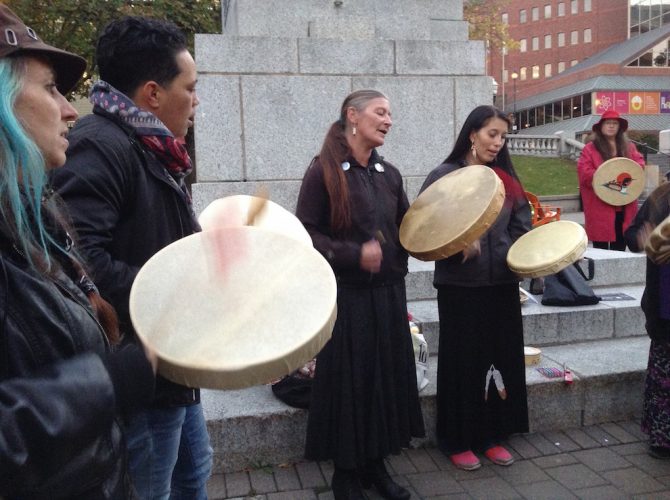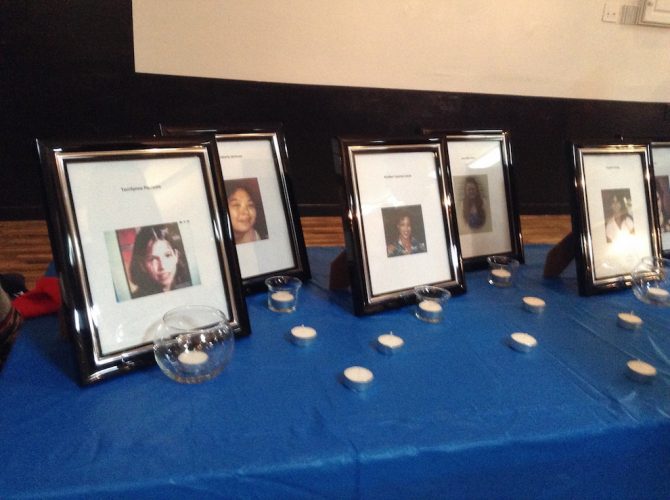MI'KMAQ CULTURE
Honouring missing, murdered Indigenous women and men
People gathered across Canada in support of families seeking justice for lost lives

caption
The ceremony for the Sisters in Spirit Vigil began with a prayer and drumming circle.
caption
The Halifax ceremony for the Sisters in Spirit Vigil began with a prayer and drumming circle.Around 100 people gathered at the Grand Parade on Tuesday for the 11th annual Sisters in Spirit Vigil, to remember the missing and murdered Indigenous men and women.
The Halifax event was one of more than 90 held across Canada to raise awareness and support for those who have lost family members and loved ones.
“It’s been too long of (Indigenous communities) having such a high rate of missing and murdered women in this country,” says Catherine Anne Martin, the Nancy’s chair in women’s studies at Mount Saint Vincent University and a member of the Millbrook First Nation.
In the last 30 years, more than 1,182 Indigenous women and girls have been reported missing or have been murdered in Canada.

caption
Photographs of missing and murdered indigenous men and women displayed at the Mi’kmaw Native Friendship Centre.Between 2001 and 2014 the rate of homicide involving aboriginal women was six times higher than homicides targeting non-aboriginal women, according to Statistics Canada.
Many families looking for support are left disappointed in the judicial system and have no answers and no justice, says Denise Onebreath Mitchell, the victim support navigator at Halifax’s Mi’kmaw Native Friendship Centre.
“We need to have our government be supportive and behind us and making changes,” says Mitchell.
The national inquiry into missing and murdered Indigenous women and girls, launched in August, is a step in the right direction, says Martin. Progress on the inquiry has been slow and many community members are frustrated.
What’s needed is a societal change, in order to combat the problem, says Martin. “It’s an attitude, it’s … fighting discrimination, racism and marginalization.”
“It’s to give people hope,” she says. For those who have lost hope, the community must support and help them to move through the process to find justice, she adds.

